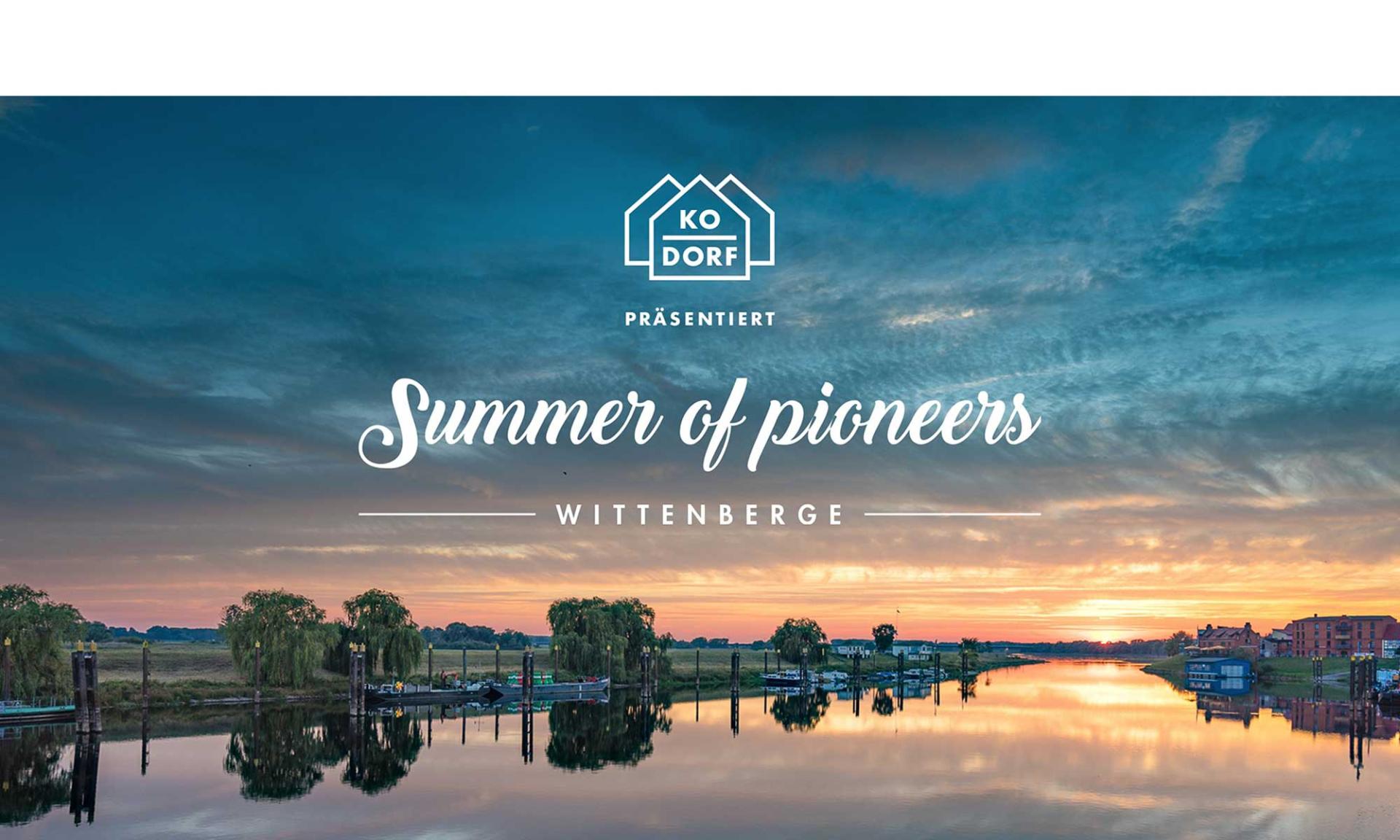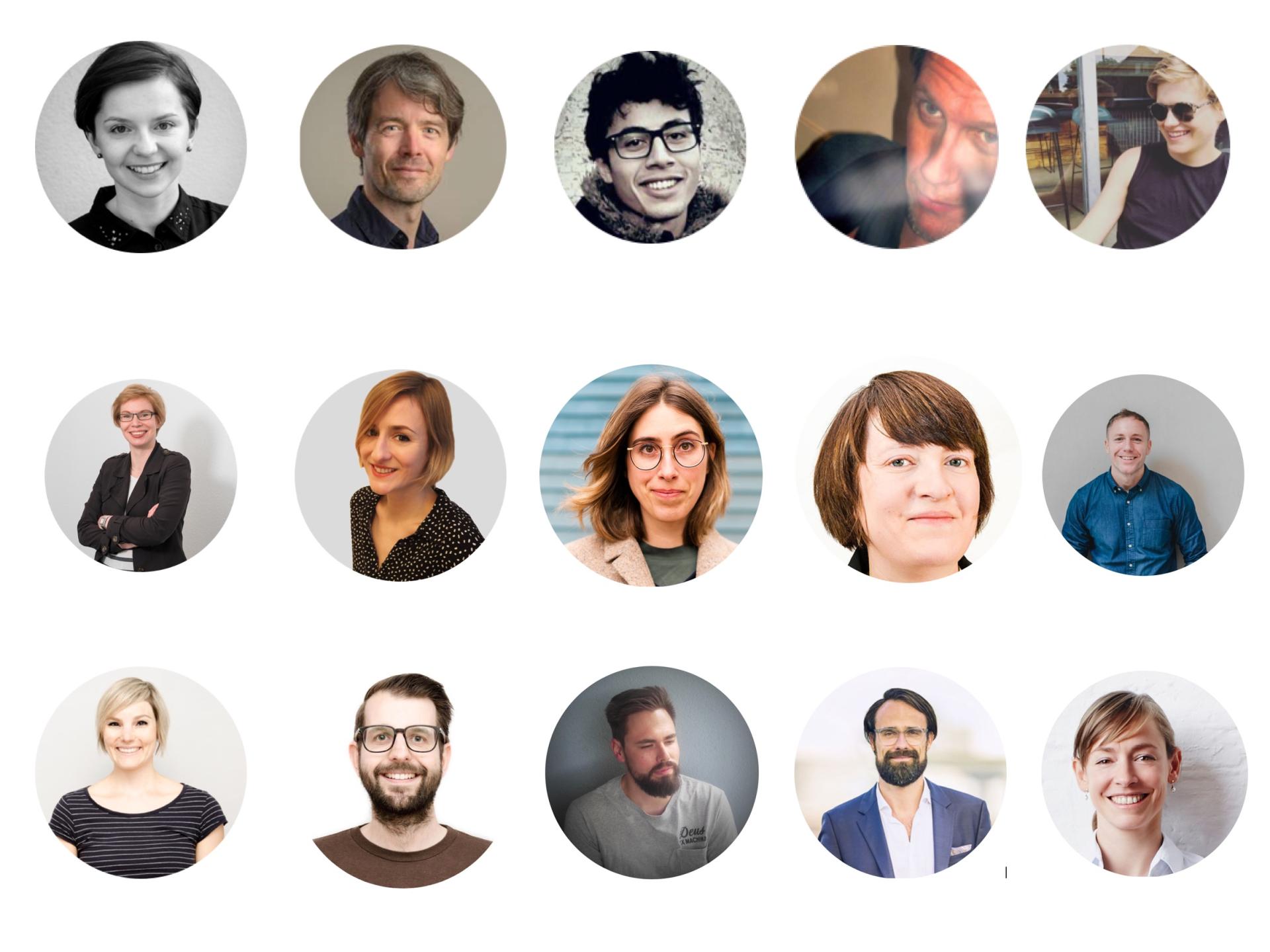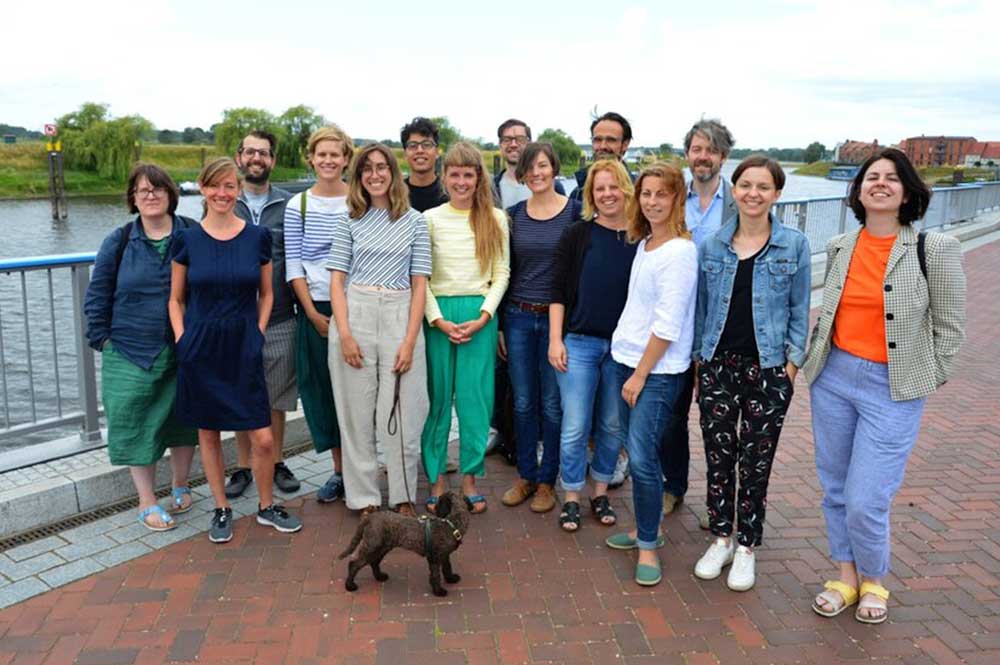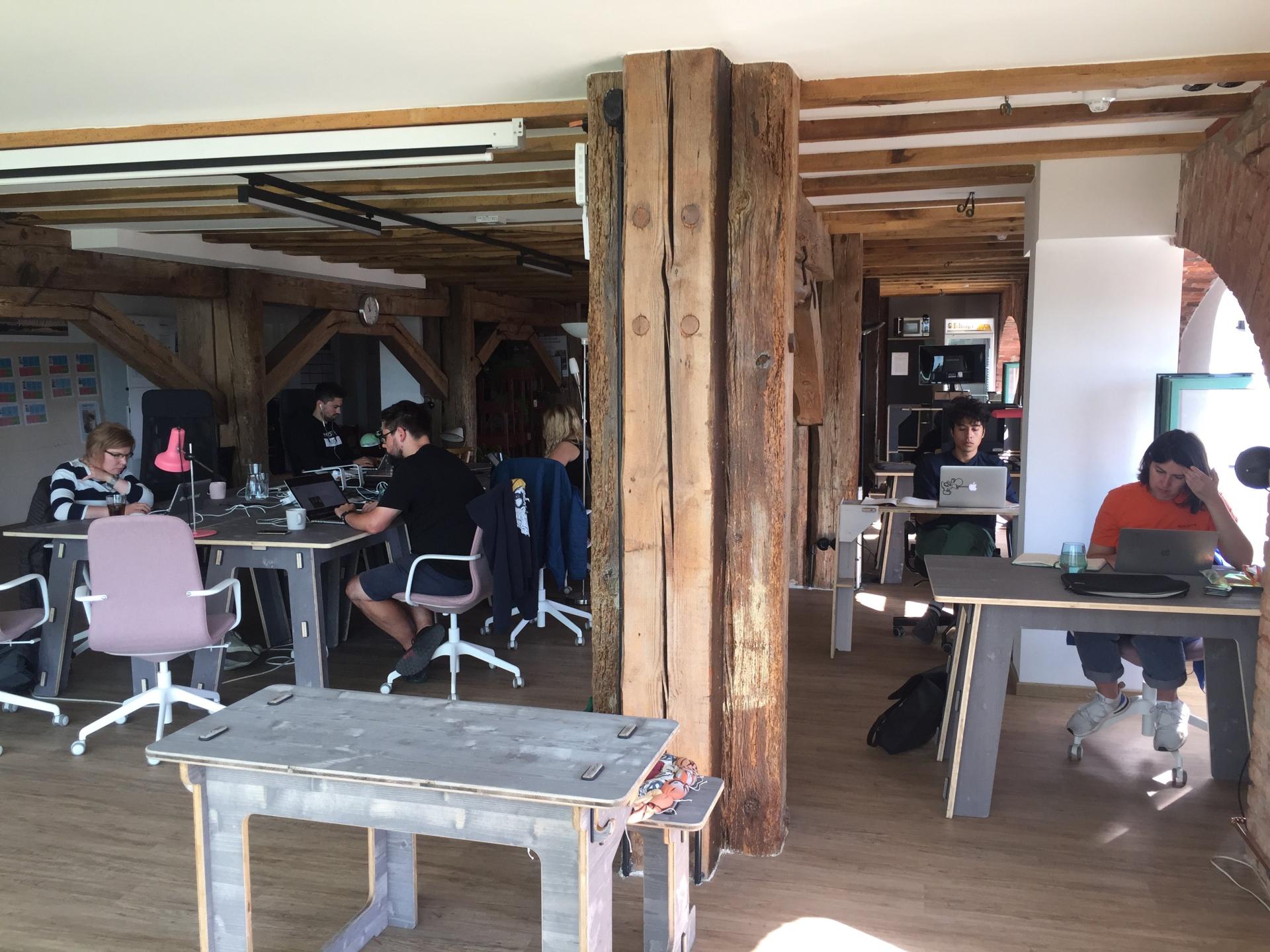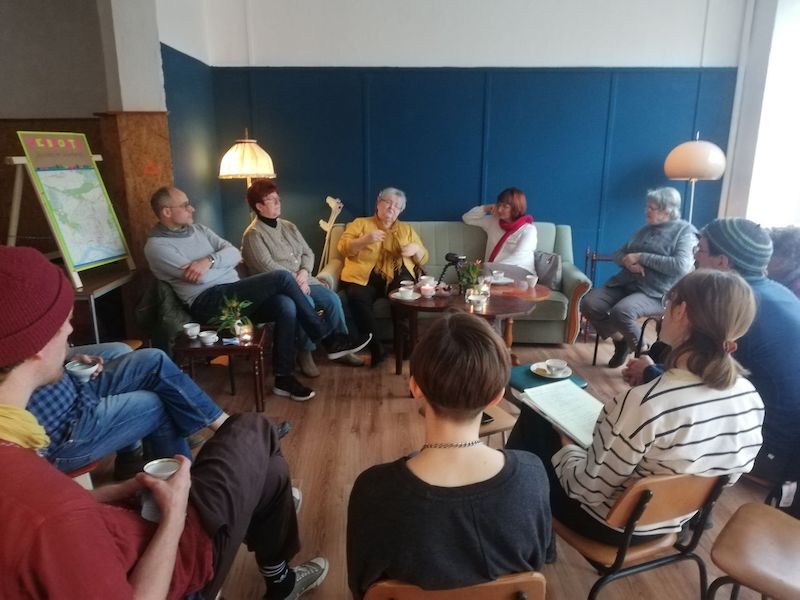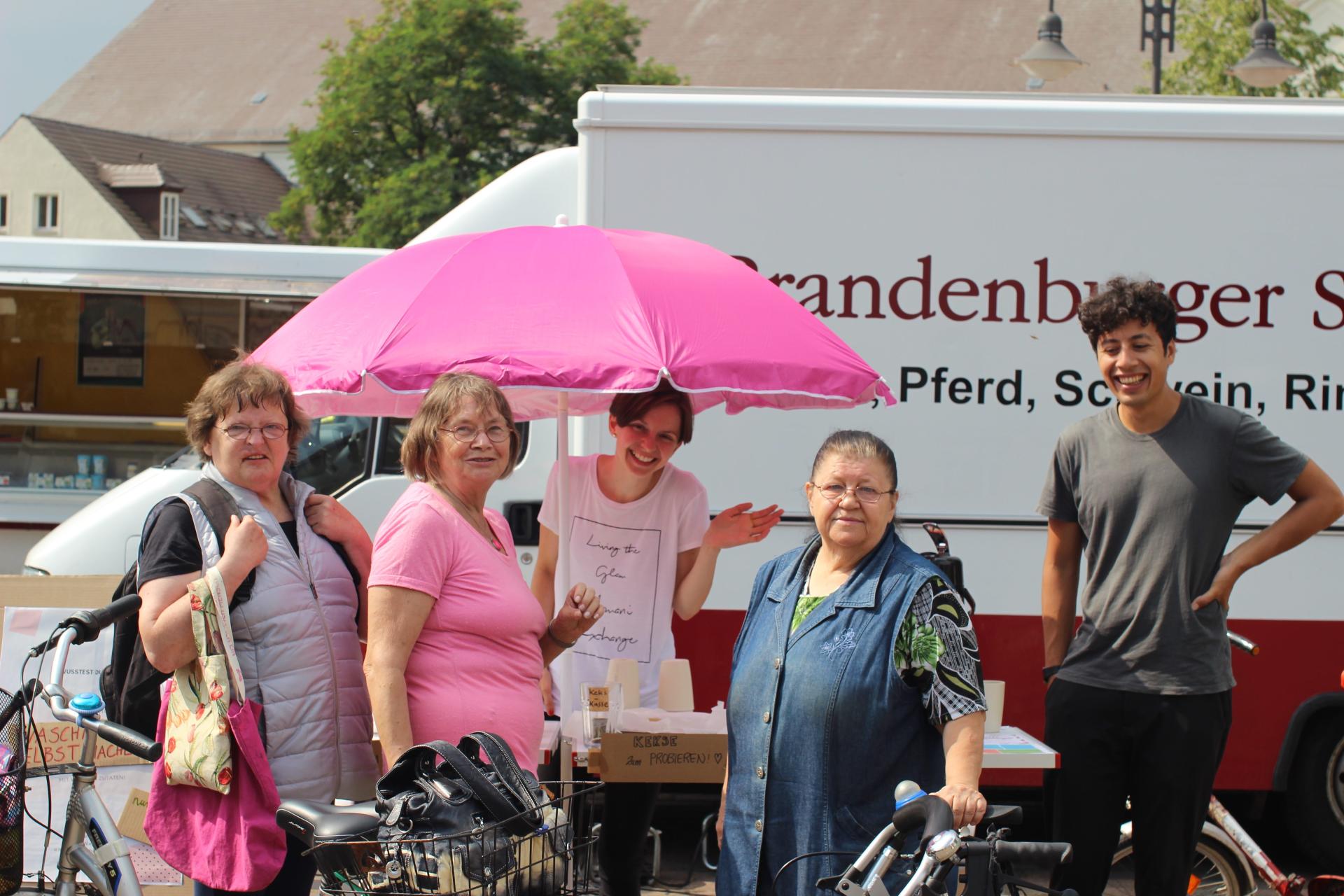Summer of Pioneers
Basic information
Project Title
Full project title
Category
Project Description
The Summer of Pioneers is a concept for “trial” living and co-working in rural areas in Germany. For 6 months 20 selected creatives and knowledge workers are provided affordable, furnished living spaces plus an especially designed co-working space by the participating municipality. In return for the "all-round care package" the pioneers contribute to the community with new impulses and thus contribute to the revitalization of otherwise neglected rural areas.
Project Region
EU Programme or fund
Description of the project
Summary
The Summer of Pioneers is a concept for “trial” living and co-working in rural areas in Germany. As part of an application procedure 20 creatives and knowledge workers are provided affordable, furnished living spaces plus an especially desigend co-working space by the participating German municipalities. In return for the "all-round care package" the pioneers contribute to the community with new impulses, ideas and specific projects, connect with local people and thus contribute to the revitalization of otherwise neglected areas. All over Germany we find municipalities who are facing that problem, but have courageous mayors or other political actors who are keen to shape a future for their region that is oriented towards the common good.
There is, on the one hand, a growing number of urban creatives and location independent workers in Germany who are tired of the big city and can totally imagine a life away from the big city - but are not yet ready to take the big step or just do not want to take it by themselves. On the other hand, there are municipalities in Germany that can score points with sufficient and affordable living space and a unique natural environment and which, in order to remain or become viable, are in need of young creative people bringing new impulses to the region. With the Summer of Pioneers we take on the dilemma of both sides and turn it into a win-win-situation.
The Summer of Pioneers was firstly implemented in 2019 in Wittenberge / Brandenburg. Due the huge and widely acknowledged success of the project, 3 more “Summer of Pioneers” are happening this year in different parts of Germany. The Summer of Pioneers in Altena (Northrhine-Westphalia) and Homberg (Hessen) have already started. Tengen (Baden-Wuerttemberg) will follow on June 18th 2021.
Key objectives for sustainability
Constructive Journalism:
Many regions suffer from a bad image. They are portrayed as outdated and hopeless. Wittenberge, the host of the first Summer of Pioneers is a prime example. It lost 40% of its population since the German reunification. Within two years after the wall went down, three of the four big industrial plants have been shut down. More than 4.000 people lost their jobs. In the media coverage the city was repeatedly mentioned as a stereotypical "Wendeverlierer" (reunification loser). For many creatives from big cities, Wittenberge offers everything, they long for: Cheap rent, vacant spaces, clean air and pristine nature. With the Summer of Pioneers we showed a different Wittenberge. The project has been picked up by national (ARD, Spiegel, n-tv and many more) and international media (BBC). Over the course of the project's duration the image of Wittenberge took a U-turn. By now it's considered one of the cultural hotspots in Brandenburg.
Revitalization of culture:
One of the 30 projects the pioneers completed, was the revitalization of a vacant gift shop in the city center ("Safari Laden"). They renovated it themselves and organized a varied cultural program, including a cinema, concerts, a civic festival, repair cafes and lectures. After initial skepticism, the place turned into popular spot for young and old alike. All in all thanks to the work of the pioneers and the positive media coverage a number of vacant places were renovated. Together with an architect we kickstarted the first joint housing development in the region.
Perpetuation of the upswing:
16 pioneers stayed after the official end of the project and founded the "Elblandwerker" community. This network is open for anyone who wants to participate in a sustainable city development. By now it comprises of 80 people. The Safari team turned into an non-profit association. One pioneer couple founded a consultancy and several pioneers work as freelancers for the region.
Key objectives for aesthetics and quality
We consider our role as a facilitator. Instead of offering a pre-planned full-service experience, we focus on the selection process and then put our trust in the pioneers and their vision for a livable and sustainable city. That said, together with the local authorities and a service provider for rural coworking spaces (CoWorkLand) we put a lot of effort in a framework that allowed the pioneers to focus on their projects.
Housing:
The local building association renovated 14 former vacant flats in an old Manchester style brickstone building, which was built a hundred years ago for the workers by Singer sewing machine factory. The flats came with new furniture. This effort clearly showed the pioneers how much the city cared for their wellbeing.
Coworking Space:
The coworking space was located in a former oil mill. One brick stone front was removed and replaced by glass in order to provide a spectacular view of the "Elbtalauen" a, protected natural habitat through which the river Elbe runs. The furniture was a mix of new pieces by the cooperative Werkhaus as well as carefully curated second hand pieces.
Key objectives for inclusion
Especially in media interviews, we were repeatedly asked if we weren't afraid of clashes with the locals. We never ran into any problems. On the contrary: We experienced that the pioneers and their projects were welcomed from the start. One of the reasons was, that we included the local population into the planning and offered all the events for free. Young people were happy to see, that other young people moved in and revitalized the cultural landscape. Older people were happy to see that after many years of depopulation, Wittenberge was suddenly considered "hip" among younger people.
Some concrete examples:
The Safari team did now only cater towards a young audience but specifically included formats for older people, like the "Erzählcafé" (storyteller cafe), where older locals could share their (often moving) memories. The "repair café" was building bridges to the industrial past of Wittenberge and connected the old workers and their craftmanship with younger people who lacked the knowledge to fix a record player for example.
Another project consisted of a "participation box" which was placed on a central square and which invited every passer-by to write down ideas to improve the city.
One pioneer organized a bar camp with the focus on sustainable city planning. The bar camp was fully booked and among the participants were many locals and mayors and politicians from the neighbouring regions.
Togehter with the local highschool we invited a famous group of journalists to perform their play, which was a mix of constructive journalism and performances around climate change. The event was held in the aula of the highschool. Pupils sat next to their teachers who sat next to the parents, who sat next to climate activists. A lively discussion among all group developed and showed the huge variety of climate projects in the region. The local authorities heard of many civic projects for the first time that evening.
Results in relation to category
Wittenberge recovered from thirty years of depopulation and now for the first time is growing again. Five public grants are based on the Summer of Pioneers and bring in over 1 Mio € in public grants.
60% of the pioneers in Wittenberg stayed permanently. Six months after the end of the programme the community grew even from 16 to 80. All pioneers work for local businesses and/or the local authorities – mainly as online marketing professionals.
Five major funding programmes are based on the Summer of Pioneers and now enable the city to perpetuate the initiated transformation process on a large scale.
The project counteracts negative population development and housing vacancies in rural areas.
The project has contributed enormously to the revitialisation of the region and is nowadays attracting more and more people especially from big cities such as Hamburg and Berlin.
The real estate market picked up by more than 10% year on year, which is a healthy sign as it makes it easier to attract loans from banks for further development.
One year after the project ended, there's still media coverage on a weekly basis about Wittenberge and the positive effects of the Summer of Pioneers.
Together with the city of Wittenberge, we received the price "Menschen und Erfolge" (people and successes) by the Federal Ministry of the Interior and the "Kultur- and Kreativpiloten" award by the Government.
After a forced corona pause last year, we organized three parallel Summer of Pioneers this year (homberg-pioneers.de, tengen-pioneers.de, altena-pioneers.de).
How Citizens benefit
With "Safari Laden" a culture café has been founded by the pioneers that is still run by the pioneers in Wittenberge who stayed permanently. The programme of the cafe is as wide and colorful as its guest: A storytelling salon is held regularly, where Wittenberg's senior citizens can tell stories about the past. Creative workshops offer young people the opportunity to express themselves. Music lovers enjoy Sound Safari, a regular music event. In addition to all the regular events, there is still plenty of room for self-organised or joint activities. The "Stadtsalon" is not only a space for culture, but is also intended to be a place for encounters between generations and to promote exchange between different population groups.
The cooperative "elblandwerker" was cerated as a continuation of the Summer of Pioneers project. The cooperative for work, life and change was founded by ex-pioneers and aim at people who are looking for a community of like-minded people and feel a need for peace, nature and deceleration. They help people to settle in the region, to network and to implement ideas and projects together in and for the region. They manage a holiday home which is provided by the city of Wittenberge and which can be rented cheaply by people who want to get to know Wittenberge and the local community. On the website, there's a "project board" where everyone can see on which projects people are working. Everyone can add new projects or join existing ones. Numerous people moved to Wittenberge thanks to the Summer of Pioneers and the Elblandwerker (the exact statistics we'll know by next year).
To everyone's surprise gentrification is a topic that people begin to worry about. Hence we established a working group on a sustainable city planning and work closely with the local authorities. There are numerous plans how the community can help revitalize the public building.
Innovative character
- The conversion and revitalization of existing, abandoned spaces
- The deep integration in the local economy and society
- Bringing together young creative talent and future-hungry communities, in order to create a culture of innovation everyone, locals and (part time) residents, are profiting from.
- the project is not only designed to have a short-term, but if successful as in Wittenberge, long-lasting effect on the future development of the area.
- the project allows to create networks on several levels. Not only can the pioneers create new networks among themselves, but also join an already existing network in town – and vice versa
- we all know that is much harder to really create an impact, if you are on your own. Bringing 20 creative minds together and bundle their energies, real transformations – little or big – are possible.
- The Neulandia team has a background in journalism and the startup industry. That helped shaping a positive coverage and attracting young talent
- The integration of providing a care-free package for the pioneers with the requirement for them to conduct common-good projects free of charge and thereby get in touch with the local community.
- The up-to-date integrated communication infrastructure (Slack, Social Media, Trello, etc.)

